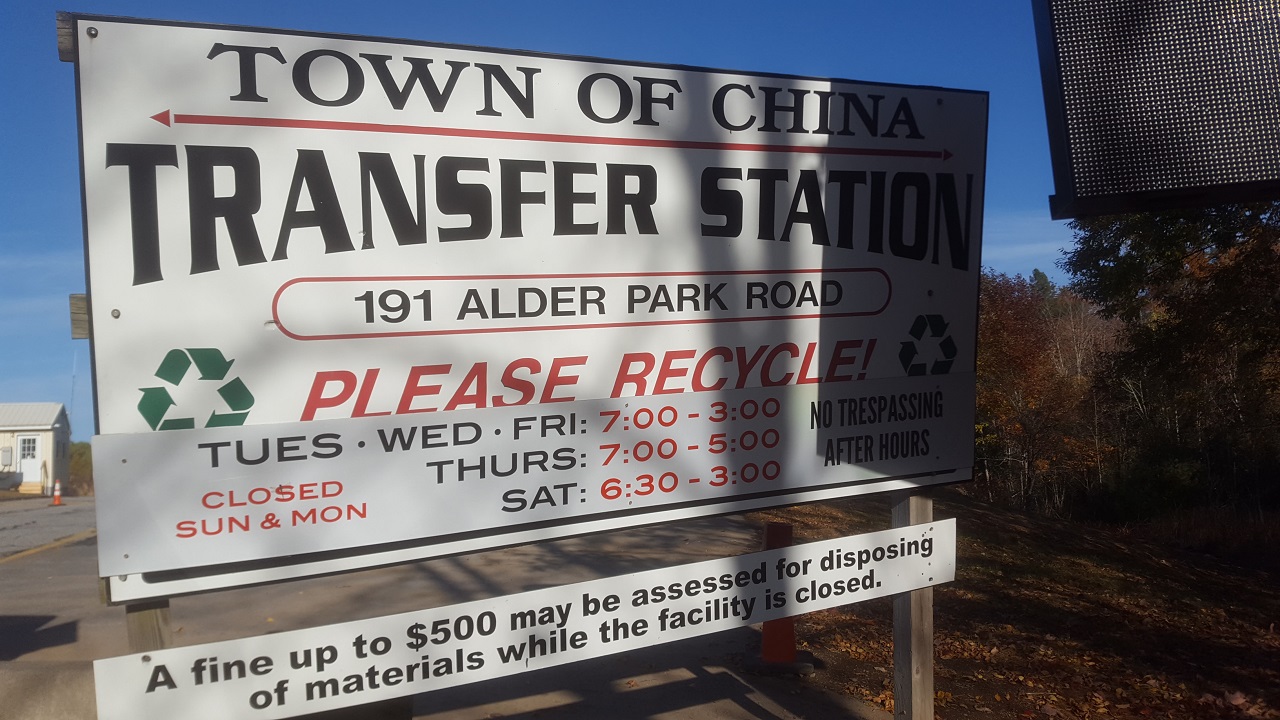PALERMO: Our little piece of the world: Sheepscot Pond
COMMUNITY COMMENTARY
by Pamela McKenney, Palermo resident
A bill has been proposed by a Maine representative to open the fishway at the outlet of Sheepscot Pond and to grant management of the fishway to the Department of Marine Resources. I have lived on the river since 1989 near the bridge on Route Three. Being a water person, I know the river and the lake and have a perspective to share regarding the controversy as well as the names of representatives you should contact if you share my concerns.
Living by the water, every season has its treasures. In the winter, I have a frozen, silver-white path that leads up river and around the bends to the lake. Whether walking, skiing, or snowmobiling, this access to the woods and the sky and the air out on the water is a pleasure that is difficult to express. After ice out, a new trove of pleasures opens up. I boat often, and I love to swim—even taught swimming lessons at the Fish and Game Club for several years—so I understand the unique resource of Palermo’s lake and what it has to offer its inhabitants—human and otherwise. I also fish the Sheepscot, each season; when the flag is up, I still run to the holes; or when reeling in a keeper at the mouth of the river, feel my heart beat faster, hoping. This wealth of experience enjoyed by me and many others may be attributed to careful lake management. Could it be better? Yes, but it could be much, much worse, as we may soon see— if LD 922 passes in January.
People, like me, have been accused of “having our hackles up” and needing a little time to get over our “hysteria.” These comments convey a disregard for those who enjoy or live by the lake and have expressed concern about the proposed changes. l am quite familiar with the birds and species of fish, reptiles, amphibians and other wildlife that depend on the watershed. I know that if I pull a perch or pickerel out of the lake in winter or see a snapping turtle lay eggs in a sandy embankment in spring, then I’ll be swimming with those creatures in the summer. People who live by and recreate on or in a Maine lake, accept and respect that other living beings exist near or in the water, as do my children and now grandchildren who know the gift of life on water.
Every summer we salt the leg of a swimmer to get a leech to detach. From my kayak I have watched with horrified fascination as a snake, on the bank of the river, slowly consumed a frog. Out off the point of Bear Island, years ago, I investigated a line, tied to a float, and pulled up a trap that was teeming with American eel. I quickly dropped the trap and paddled away knowing that regardless of how far or how fast I move my boat, the eel, the snake, snapping turtles and leeches will be there. This is life on the lake. My protestations over this bill is not about an hysterical fear of sea lamprey. The idea of swimming with a lamprey does not appeal to me but I wish it no harm. I now know more about these creatures than I ever expected, and I have learned that denying lamprey access to Sheepscot Pond will not harm them, nor will denial harm the alewife, but opening access may do a great deal of harm to other lake inhabitants.
Humans will find a way to live with “the good, the bad, and the ugly” that inhabit the lake, but will the species of fish on which the lamprey feed withstand the parasitic interaction? Of specific concern is the lake trout (togue) and other game fish. Back in the late seventies, early eighties, when I fished the Sheepscot with friends, I remember the scars on the fish we caught left by the lamprey. I remember the comments of the real fishermen who said the lamprey did not leave the lake as they should in late summer. They stayed and fed on the game fish. Low water levels changed the habits of these sea creatures, making them landlocked. The sea lamprey overpopulation became such a problem that the Department Inland Fisheries and Wildlife blocked the fishway at the dam from May to June to prevent anadromous species, such as, alewife, American eel, and sea lamprey, from migrating into the lake.
Since alewife feed on zooplankton which contribute to algae blooms (alewife do not eat the algae) many are excited about their reintroduction, hoping for improved water quality for struggling Maine lakes, but overabundance of alewife (as has been experienced recently in Webber Pond) can degrade water quality and cause other complications. According to the Illinois Department of Conservation’s 1993 Biodiversity Report the presence of alewife could “restructure a lake’s food web, leaving less food for native species” like white perch and smelts, thus “limiting their availability to larger predators” such as lake trout and salmon. A.L. Houde, et al in the Journal of Great Lakes Research, reports that “consumption of alewife which contain high levels of thiaminase,” reduces absorption of thiamin in predators such as salmonids (like salmon, trout, whitefish) and can cause “reduced body condition, swim performance, and other potential impacts.” What will happen when thousands of alewife make their way into the Fish Cultural Station at the outlet? Imagine the challenges of mitigation and the need to prevent contamination. Who would test the delicate balance of a lake environment?
When I ask why would we take control of an inland lake from the Department of Inland Fisheries and Wildlife, which has managed it for 50 plus years, and give it to the Department of Marine Resources? The one answer I get is: “to return anadromous fish to their origins.” That is the politically correct answer. I see it as a special interest group lobbying to benefit their “special interest” without completely considering the impact on this individual lake. We all tend to see what we want to see and maybe those who support the bill see that they are attempting to take the watershed back to the way it may have been before the dam existed and before the Fish Cultural Station (hatchery) existed and before the lake was peppered with homes that reap tens of thousands of dollars in tax revenue which pays for those departments and the salaries of representatives that now want to restore the watershed even though the existing water quality of Sheepscot Pond is currently good. A vicious circle.
But the dam does exist, as does the hatchery and the homes. This is a complicated issue made more complicated by those who lobby representatives to create bills for monetary gain—in this case those that would harvest the alewife which will flourish with access to Branch Pond, China Lake, Webber Pond, Long Pond, and now—if the bill passes—Sheepscot Pond. It is no secret that the representative who proposed the bill is the president of the alewife association but is it a conflict of interest? He represents coastal communities which will benefit from an abundance of alewife for bait. Let’s hope the representatives of Palermo and neighboring towns will consider our “little piece of the world,” as well as the interests of a currently healthy lake.
Sheepscot Pond is not just any lake to me, what does that make me guilty of? Guilty of caring about the changes that others would haphazardly impose. And when I am accused of focusing on my “little piece of the world” and not seeing the “big world” I won’t apologize for that. If more of us paid attention to the little things—the things right in front of us that we can actually do something about, then maybe those little actions should be taken. The health and wealth of our lake may change irrevocably with the scribble of a pen or removal of a barrier. Change can be good, but too often it is wrought for the benefit of specialized interests and we fail to consider the little pieces of the big world.
Responsible journalism is hard work!
It is also expensive!
If you enjoy reading The Town Line and the good news we bring you each week, would you consider a donation to help us continue the work we’re doing?
The Town Line is a 501(c)(3) nonprofit private foundation, and all donations are tax deductible under the Internal Revenue Service code.
To help, please visit our online donation page or mail a check payable to The Town Line, PO Box 89, South China, ME 04358. Your contribution is appreciated!




Just wanted to comment that this article by Pamela McKenney was excellent and very informative. A great summary of what has transpired. Thank you for your time and effort.,